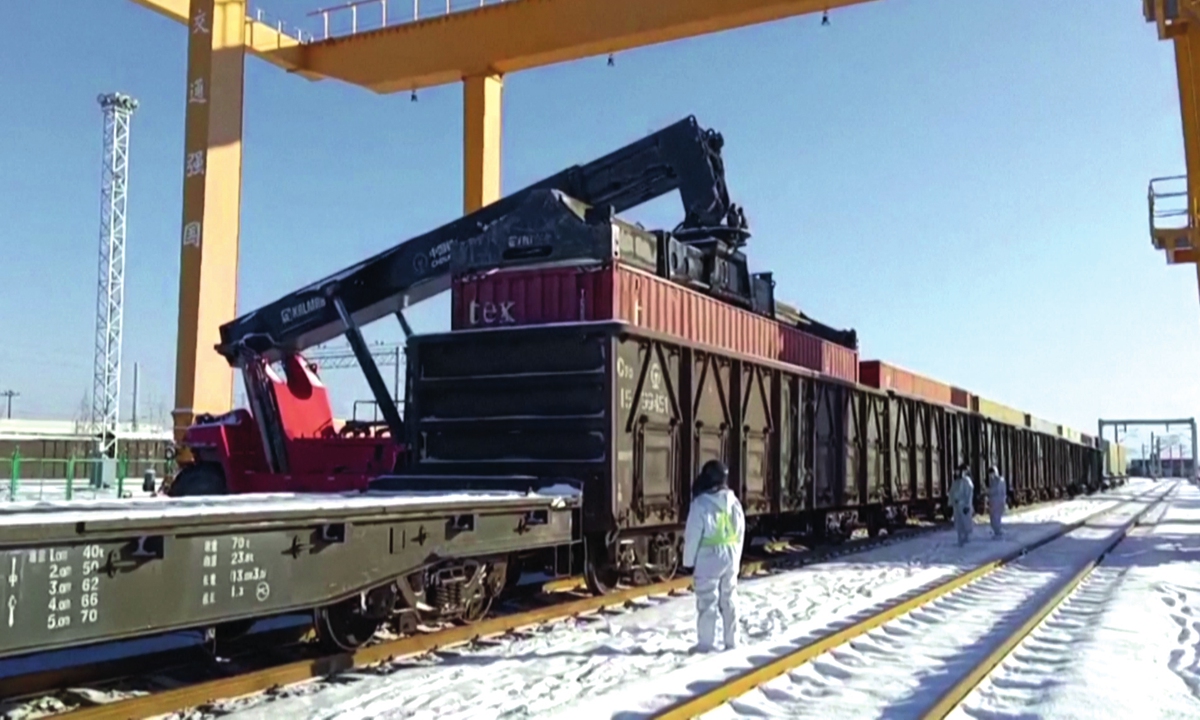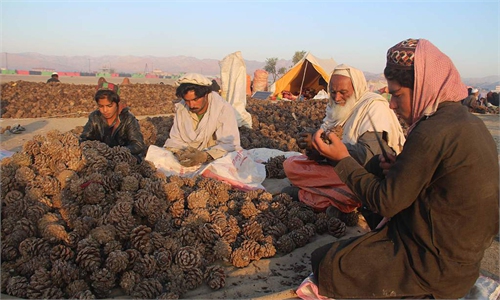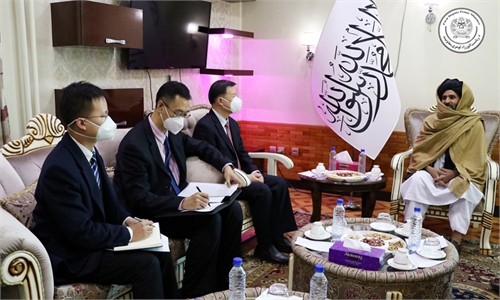
1,000 tons of supplies for winter are packed in Urumqi, Northwest China's Xinjiang Uygur Autonomous Region to be dispatched to Afghanistan on November 20, 2021. Photo: VCG
China's business representatives at China Town in Kabul are to hold what could be the first large expo in Afghanistan since the Afghan Taliban took power, aiming to create a platform for traders and producers to find deals on complementary goods for each other's markets, business representatives told the Global Times.
China and Afghan business interactions have seen an upward trend in recent days, driven by the unleashing of market potential for Afghan agricultural and other related products in China, its largest neighboring market, according to the representatives.
China Town in Kabul is to hold Afghanistan's first China commodity technology fair, as well as the second China-Afghanistan business fair in April.
The arrangements have been made, including the invitation of some government officials in Afghanistan and Chinese business representatives from various sectors, the Global Times learned from a source at China Town in Kabul.
The organizers include a wide range of government and industry representatives, with academicians, traders, producers and investors from both sides expected to participate in the events, according to an introduction document obtained by the Global Times.
"This form of exhibition is unprecedented, since no Chinese company has done it before," Li Xijing, deputy general manager of China Town, told the Global Times on Sunday.
"We have sent invitations to the various Afghan government departments, and they have indicated that they would participate in the meeting at that time… there will be more participants expected," Li said.
It is hoped that through the exhibition, China Town can build a bridge for direct communication between Chinese and Afghan enterprises and merchants, and create a platform to bring together Chinese enterprises, merchants and commodities to directly enter the Afghan market for transactions, Li added, noting that the event will be held on a regular basis for a long time.
About 95 percent of Afghan goods are imported, and Chinese goods account for 60-70 percent of all imports, but most of these items enter the country via entrepot trades. The exhibition is expected to change the situation by finding more direct connectivity between Chinese and Afghan traders.
Bilateral trade has seen a renewed boost with Afghan pine nuts getting access to the Chinese market, a prelude to the gradual recovery of bilateral agricultural trade.
On November 1, 2021, the first charter plane carrying 45 tons of pine nuts arrived in Shanghai. After entering the China International Import Expo, 120,000 bottles of pine nuts from Afghanistan were sold out as soon as they appeared.

Live streamer Li Jiaqi (right) works with CCTV reporter Wang Bingbing (center) to sell 120,000 cans of pine nuts from Afghanistan on November 6, 2021. Photo: VCG
Experts are looking forward to this kind of exhibition and sales event to be held in Afghanistan, predicting that these events will promote cooperation in industrial products, medical care and food.
Afghanistan is a country dominated by agriculture and animal husbandry. Local products such as nuts, sheepskins and saffron are competitive in the Chinese market, but they also lack channels to enter the market, Yan Wei, professor with the Institute of Middle Eastern Studies of Northeast University, told the Global Times on Sunday.
But lingering concerns such as regional stability and risks from sanctions by the West will remain major hurdles for Chinese investors to do business in the South Asian country, industry experts said.
It would be more at the level of trade rather than investment cooperation, given that the investment risk for Chinese enterprises in Afghanistan is still relatively high, Yan said.
"Although there are some investment promotions in Afghanistan, including high-value minerals, the investment is still difficult and the investment cycle is long," Yan said.



